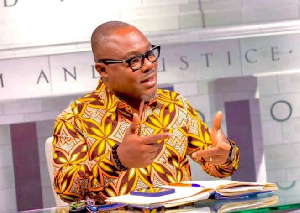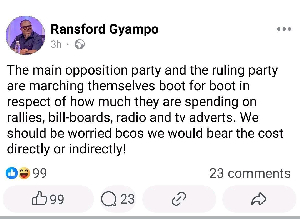
Professor Ransford Gyampo's concerns about the escalating financial demands of political campaigns in Ghana are valid and timely. The increasing expenditure by Ghana's two main political parties could have far-reaching implications for the nation's governance and economy.

Gyampo's warning that both parties are engaged in an expensive "arms race" when it comes to campaign spending is particularly worrying. The use of rallies, billboards, radio, and TV advertisements has reached unprecedented levels, with both parties seemingly matching each other "boot for boot" in their financial outlays .
This spending spree should indeed be a matter of concern to all Ghanaians, as the public will ultimately bear the cost, whether directly or indirectly. The hefty financial investments in campaigns often result in politicians prioritizing the recovery of their costs after securing office, sometimes at the expense of public welfare.
The impact of these expenditures on Ghana's economy is also a cause for concern. Gyampo suggests that they contribute to economic mismanagement and resource diversion. Once elected, politicians may feel compelled to recover the funds they've spent, which could lead to decisions that are not in the best interest of citizens .
To address this situation, Gyampo advocates for legislative intervention, specifically the introduction of a law to impose caps on campaign spending. This reform is necessary to prevent only those with significant financial backing from mounting competitive campaigns, thereby sidelining capable individuals who lack the means to raise the necessary funds .